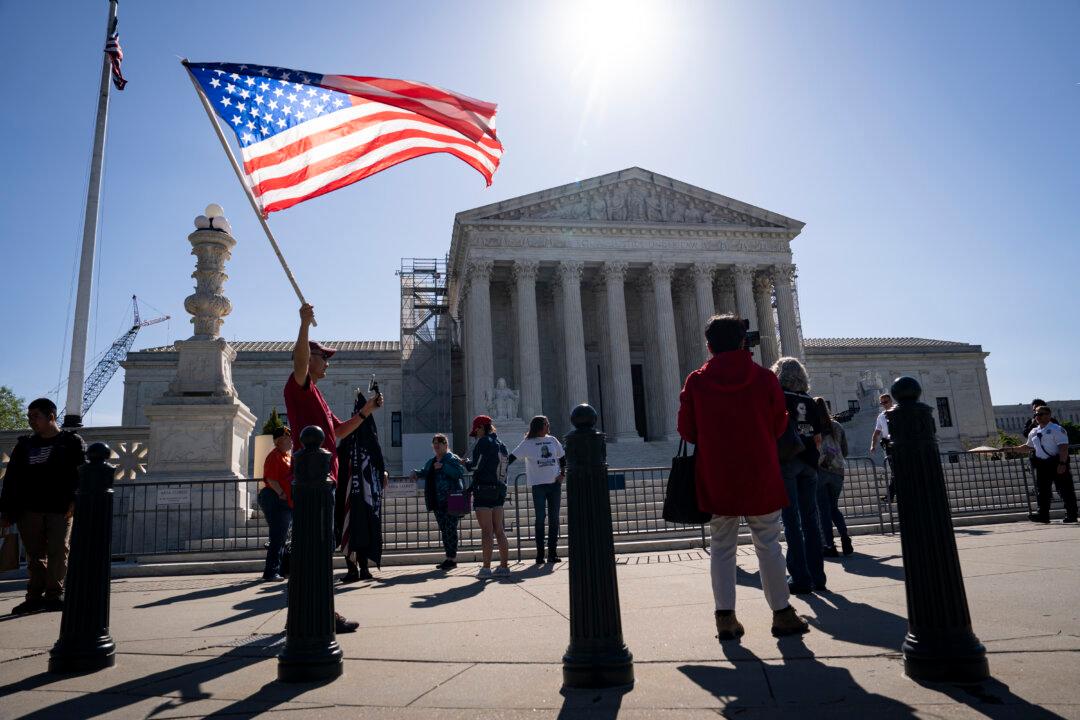The solicitor general confirmed on several occasions during an April 16 hearing that the Department of Justice’s interpretation of a 2002 Enron-era obstruction law could be used against peaceful protestors. The obstruction law carries a maximum of 20 years in prison.
Solicitor General Elizabeth Prelogar told the U.S. Supreme Court that it was the Biden administration’s opinion that the law being used to prosecute Jan. 6 protester Joseph W. Fischer, 57, of Jonestown, Pennsylvania, could also be applied to other peaceful protesters.





